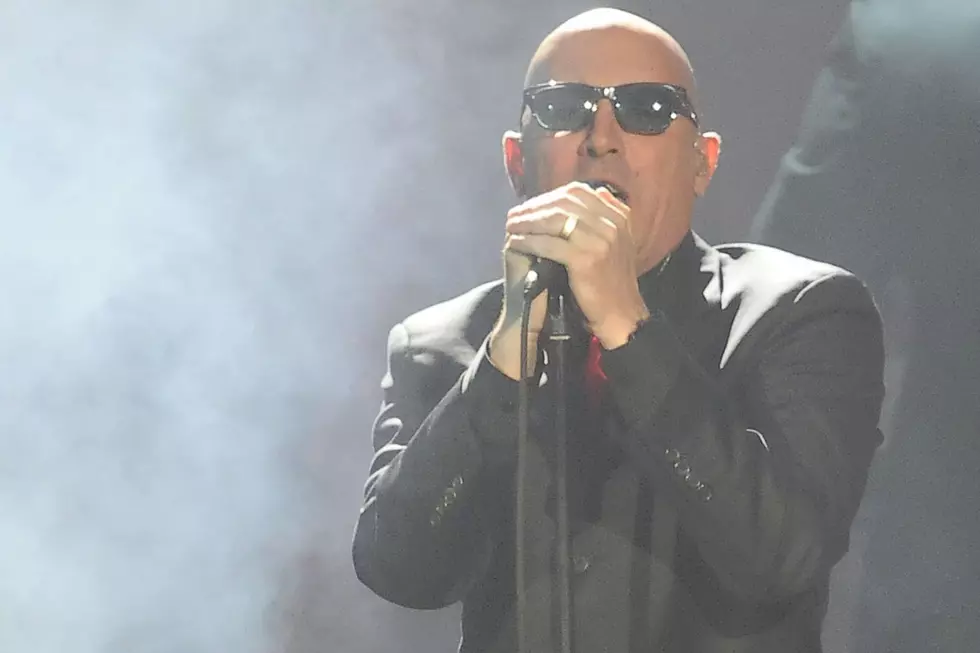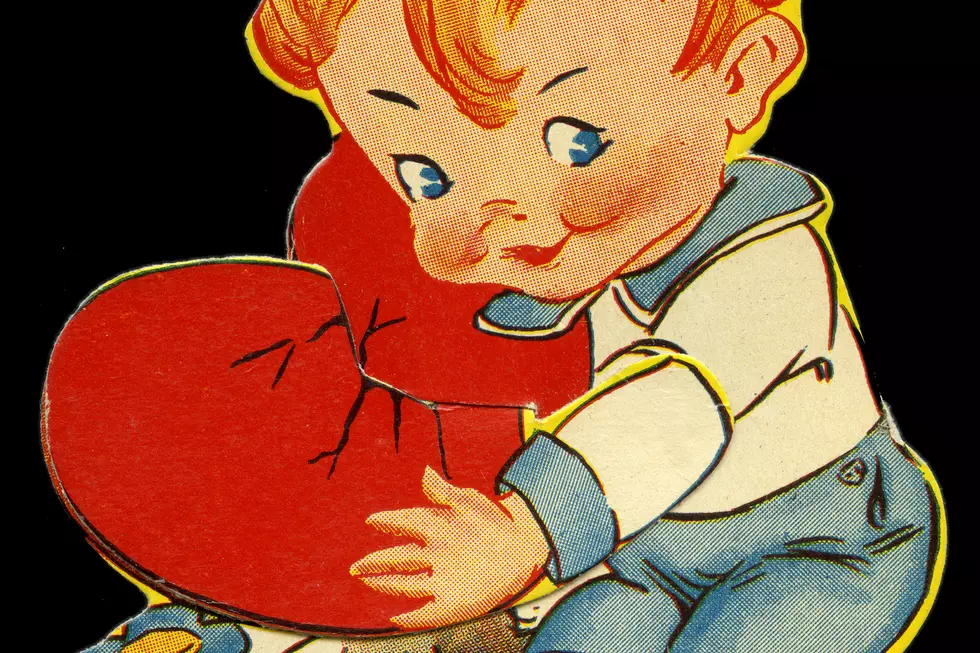
10 Debate Topics for Indie Rockers: How Might Obama and Romney Respond?
Tonight marks the first debate between President Barack Obama and Republican challenger Mitt Romney, and while they're expected to delve deep into to the major domestic issues -- jobs, the economy, health care, etc. -- it's doubtful they'll address the issues most pertinent to the indie rock community. For years, indie fans and musicians alike have wrestled with various topics, and in the spirit of tonight's political face-off, we're counting down 10 of the biggest indie rock debates -- vexing questions that have hung over the scene for years -- and speculating about how Obama and Romney might respond.
Is it Better to Burn Out or Fade Away?
Neil Young wrote the famous line “It’s better to burn out than to fade away” in ‘Hey Hey, My My (Into the Black),’ and since then, it’s been associated with the age-old aging-rocker choice of bowing out on top or fading off into irrelevance, as Young worried he was doing when he penned the 1979 tune. Asking Obama his preference is like asking if he’d rather be a one-term president or get reelected and then accomplish little his second time around. Romney, meanwhile, could very well be on the path to experiencing both: He’s already fading in the polls, and he could burn out big time on Election Day if his numbers don’t improve in some swing states.
Vinyl or Digital Download?
Born on the cusp of the Baby Boomers and Generation X, Obama is likely just as comfortable with the digital medium as he is with vinyl. Also, considering his progressive agenda and embrace of new technologies, vinyl seems a bit passe, despite its hipster cache. Born a year before the LP record was introduced by Columbia Records as the new standard format for the entire industry in 1948, Romney grew up in the golden age of vinyl. A lot of his favorite bands -- the Beach Boys, Aerosmith, the Eagles and Alabama -- originally released some of their biggest-selling albums on vinyl, so we’re going to guess that’s his format of choice.
Is Punk Dead?
Almost as soon as punk was born, fans began declaring it dead, and the British zine 'Sniffing Glue' famously pinpointed the Clash's signing with CBS as the moment it took its last gasp. But punk remains the chosen music of both nihilists and activists, and insofar as it's still relevant to the latter, Obama is probably a fan -- and of the opinion it's not dead. Republicans have been quietly hoping punk would disappear since the '80s, when a slew of politically charged hardcore acts like Reagan Youth and the Dead Kennedys were bagging on the forgetful former actor then occupying the White House, so they're cautiously optimistic that the days of Doc Marten's and shaved heads are finally behind them.
Does EDM suck?
Rockers have been debating the merits of synths and drum machines since the '70s, when some tech haters went so far as to stage a "Disco Demolition Night" in Chicago. In the '90s, rock made nice with dance -- Chemical Brothers, Prodigy, etc. -- but these days, Skrillex and Deadmau5 are divisive figures. An efficiency expert, Romney loves EDM simply for the fact that it can replace live humans playing instruments with drum machines and samplers, while Obama worries that computers are taking away jobs from hardworking Americans.
Does Signing with a Major Make You a Sellout?
It wasn't so long ago that an indie band inking a contract with a big, evil major label was seen by many in the underground as well, selling out. These days, major labels seem either harmless or largely irrelevant, but some indie artists still hang on to the ideals of yore. That said, how would this election's presidential candidates feel about inking with a major? Despite Obama's background in grassroots campaigning and working as a community organizer, he understands more than most that sometimes, you have to work from within the corporate system to get things done. As for Romney, the question of indie or major doesn't matter: Either way, his private equity firm is going to swoop in and leverage a hostile takeover of the band, fire the bassist, drummer and second guitarist, sell off all copyrights to its back catalog, liquidate its merch and relocate the singer to Indonesia -- and somehow make $15 million in the process.
Does Licensing Your Music for Commercials Make you a Sellout?
Less than a decade ago, an indie band licensing its music for use in a commercial was often seen as a greedy move; these days, an indie band licensing its music for an ad is often seen as an honest way to expand its revenue streams. Either way, Romney doesn't seem so concerned with the practice -- in fact, he was sent a cease and desist letter from the Silversun Pickups for using their tune 'Panic Switch' during a campaign rally. (OK, so it wasn't a commercial, but still.) And we're guessing Obama, who has spent much of the last several months schmoozing with rich campaign donors despite absolutely dreading the practice, has no issue with raking in the loot through less-than-ideal circumstances.
Blur vs. Oasis
There was a brief period in the '90s when picking sides in this one revealed as much about your individual tastes and worldview as announcing your political affiliation. The '90s answer to the previous generation's Beatles vs. Rolling Stones, the infamous Oasis/Blur feud started out as much a play in the British press as an actual battle between bands, but at its center was bona fide class-based warfare. Blur were middle-class suburban London art-school kids, while Oasis were hard-drinking, blue-collar thickos from up North. Strictly taking class into consideration, it would seem Romney obviously sides with Blur and Obama Oasis, but things get confusing pretty quick. (The Mormon Romney never drinks, for starters ...)
Reunite or Preserve Mystique?
The last decade has seen a slew of indie reunions, as everyone from post-punk OGs Mission of Burma to slacker heroes Pavement have decided to reform and take (mostly) well-deserved victory laps. While responses from fans and critics have generally been positive, some have slagged off bands like the Pixies for touring repeatedly behind old material without offering anything new. It's perhaps more a question of nostalgia vs. progress than one of preserving mystique, and both Obama and Romney fancy themselves forward lookers -- despite the fact that they hark back to old-timey American ideals (hard work, family values, etc.) that, even in the proverbial "good old days," were probably more fiction than fact. Bottom line: We're thinking they're anti-reunion. Maybe, they even have some Stephen Malkmus and the Jicks and Frank Black records in their collections...
Are You What You Own?
"You are not what you own," Fugazi's Ian MacKaye sings on the anti-corporate anthem 'Merchandise' off band's platinum-certified 1990 debut album, 'Repeater.' The Washington, D.C.-based post-hardcore quartet was known for its strict D.I.Y. ethos and non-traditional approach to promoting music, and those lyrics became something of a mantra for the band, We're going to go ahead and give both candidates the benefit of the doubt and say neither man defines himself by what he owns. That said, if they are what they own, both are clearly in the so-called 1%, with President Obama boasting an impressive net worth of about $11 million, and Romney claiming (not on his taxes, some charge) a massive net worth of $200 million.
Too Old to Rock?
At 65, Mitt Romney is younger than senior rockers like Mick Jagger and B.B. King, who are still going strong at the ripe ages of 69 and 87 (!), respectively. The 51-year-old Obama, meanwhile, has actually rocked with both Jagger and King, helping the legends belt the tune 'Sweet Home Chicago' during a blues concert that the White House hosted earlier this year as a part of the 'In Performance at the White House' series that airs on PBS. Neither candidate is ready to retire -- at least not in the next four years -- so here, they might have actually found something they can agree on.
More From Diffuser.fm









